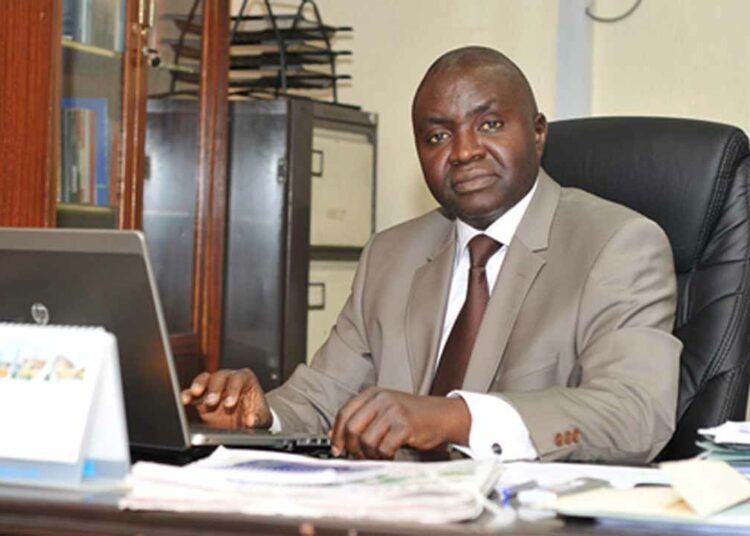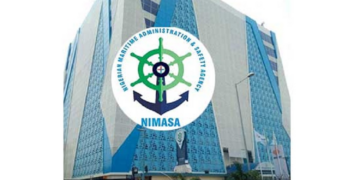The Chief Executive officer, Center for the Promotion of Public Enterprise (CPPE), Dr Muda Yusuf, has raised the alarm that foreigners have taken over freight forwarding at the nation’s seaports.
Dr Yusuf, who disclosed this over the weekend at the 2024 annual seminar for maritime journalists, organised by First Mediacom Network Limited in collaboration with the Nigerian Shippers’ Council (NSC) said, jobs that can be done by Nigerians should be preserved and protected from incursion.
According to him, the government must save maritime sector jobs because massive jobs in the maritime sector are lost to foreigners on a daily basis.
“There has to be a deliberate policy to support our indigenous investors in the maritime sector. Jobs that can be done by our own people should be preserved for us.
We need to save maritime sector jobs because we are losing the jobs in the maritime sector by the day. We are importing a lot. We are exporting a lot. Our indigenous people cannot be spectators in their own economy. It’s not right. Whether it’s clearing, whether it’s shipping, these jobs are being taken away.
“There must be a policy to protect Indigenous people in each sector. It’s very important. We cannot sit by and all the jobs in maritime are being taken away.
“I’m not saying that we don’t need foreign investors. But they can go to areas where we don’t have capacity. We have the capacity to do the clearing. We have the capacity to move things. Why must people come in from all sorts of places to clear a cargo here? It’s not acceptable,” he said.
The former director general of the Lagos Chamber of Commerce and Industry (LCCI), however, called for effective support for a quick passage of the ‘Port Economic Regulatory Agency Bill (PERAB),’ waiting for the concurrence of the Senate Chamber of the National Assembly.
Yusuf noted that the Nigerian port industry is plagued by the activities of monopolists who have operated unchallenged over the years due to the absence of a strong regulator of the sector.
He, however, reiterated that smaller jobs in the Nigerian port industry, like freight forwarding, have been dominated by the foreign monopolists robbing Nigerians of jobs and economic empowerment. He affirmed that the current regulatory framework in the industry is weak, leaving consumers, investors, and port users vulnerable to unfair practices.
To him, “When you have a sector dominated by monopolies, you don’t have much choice. You don’t even have a choice of where your container will go. So, we are at the mercy of these monopolies.
“What can you say to a consumer when there is competition? But there is no competition in this place. So it is only a strong regulator that can protect the consumers that can protect investors, and protect port users. So it’s very important that we support the Nigerian Shippers’ Council to become a very strong and effective regulator. That’s extremely very important.”
Yusuf further canvassed for policies to support indigenous investors and protect jobs for Nigerians in the sector, lamenting that the Cabotage Act set up to protect indigenous shipping companies has not been effectively implemented as Indigenous investors continue to lose their jobs due to foreign dominance.
Yusuf also criticised the high exchange rate for calculating import duties by the Nigeria Customs Service, saying the development has made the cost of doing business in the Nigerian ports unimaginably expensive. He called on the authorities to review these policies, which, according to him, have led to the diversion of cargo to the ports of neighbouring countries and smuggling.
“We are losing a lot of jobs because the domestic policies are tough. Sometimes the import duties are too high. Then you have this problem of the exchange rate for the clearance of cargo,’ he said.











